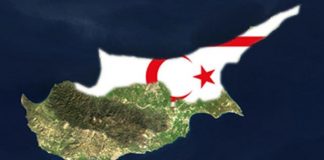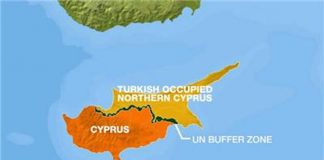Ecevit
The Divisions of Cyprus, by Perry Anderson
Firsta published at 24 April 2008
www.lrb.co.uk
By Perry Anderson
Enlargement, widely regarded as the greatest single achievement of the European Union since the end of the...
The Divisions of Cyprus, by Perry Anderson
Firsta published at 24 April 2008
www.lrb.co.uk
By Perry Anderson
Enlargement, widely regarded as the greatest single achievement of the European Union since the end of the...
Killing a Republic – Kissinger and Cyprus
We republish an article posted already back in January 2017, when the first UN Geneva conference on Cyprus was held. All the essential points...
The Divisions of Cyprus, by Perry Anderson
24 April 2008
Enlargement, widely regarded as the greatest single achievement of the European Union since the end of the Cold War, and occasion...
The Divisions of Cyprus, by Perry Anderson
Firsta published at 24 April 2008
www.lrb.co.uk
By Perry Anderson
Enlargement, widely regarded as the greatest single achievement of the European Union since the end of the...
Killing a Republic – Kissinger and Cyprus
By Dimitris Konstantakopoulos (*)
First published: 6th January 2017
In July 1974 the US-controlled Athens military junta organized a coup d’état in Cyprus and an assassination...
What Kissinger did in Chile, Cyprus, Turkey, the Middle East and...
Release of CIA’s ‘Family Jewels’ provides insight into political juggernaut and Bush Administration adviser
Original post date: 27 January 2007
Former Secretary of State Henry Kissinger...
Obama, Kissinger and Nuland: Cyprus 1974 – Cyprus 2017
In 1974 Kissinger was able to prepare his Cyprus coup first by deceiving everybody about his real intentions, including the Greek dictator Ioannides, Archbishop Makarios and Soviet FM Gromyko (when he met both of them in Nicosia weeks before the coup), the British government and even his own President Richard Nixon, probably exploiting his serious troubles with Watergate.
The Divisions of Cyprus, by Perry Anderson
Enlargement, widely regarded as the greatest single achievement of the European Union since the end of the Cold War, and occasion for more or less unqualified self-congratulation, has left one inconspicuous thorn in the palm of Brussels. The furthest east of all the EU’s new acquisitions, even if the most prosperous and democratic, has been a tribulation to its establishment, one that neither fits the uplifting narrative of the deliverance of captive nations from Communism, nor furthers the strategic aims of Union diplomacy, indeed impedes them.





